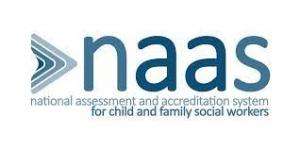After ending the National Assessment and Accreditation System, leave us to identify our own learning needs

Published by Professional Social Work magazine, 4 February, 2022
The formal end of the National Assessment and Accreditation System (NAAS) in England will not be mourned by a majority of child and family social workers. It was an expensive and unpopular flop.
Social workers’ post-qualification professional development is important. There needs to be investment in it. However, NAAS was grounded in unevidenced and flawed assumptions that underpinned the Reclaiming Social Work (RSW) model. These included that the calibre of social work students was poor, their university teaching inadequate and post-qualification testing was needed to weed out unsuitable practitioners.
Writing about the RSW model in 2012, its founders Isabelle Trowler and Steve Goodman were keen to emphasise that all staff involved in RSW in Hackney had been tested and that “the vast majority of applicants [did] not get through this process”. It is unsurprising, then, that from its genesis in 2014 NAAS set greater store on testing social workers than supporting their development.
It also laid a distorting emphasis on candidates’ performance in simulated practice scenarios which assess a very narrow range of interview-based skills. Such skills are undoubtably relevant to the social work role, but comprise a small part of the knowledge, skills and values that are constitutive of reflexive, ethically informed, practice.
The demise of NAAS has been a long time coming. It had been clear for some time that, despite carrot and stick incentives, take up was painfully low. Anyone who listened to children’s services social workers and managers in England knew of the low regard in which they held it. Yet it took seven years and at least £24 million of public money for the government to partially recognise this fact itself. It would be churlish if the government did not now use this moment to reflect and consider a better way forward.
In this regard, we suggest the government should stop ‘doing to’ the social work profession in England and start working with, and listening to, it. If we want reflexive, critically analytical, social work professionals then we best begin by valuing and trusting them more.
Ask social workers what their professional development needs and ambitions are rather than dictating a narrow curriculum to them. When government and employers try to rigidly decree learning on practitioners, it becomes a benchmarking exercise rather than a system that flexes to individuals’ learning needs.
Social workers arrive in practice from a variety of points – undergraduate, postgraduate, fast-track and apprenticeship qualifying routes, with different levels of personal and professional experience, and varying career goals. Each will develop individually and there needs to be space to learn, relearn and reflect on the complex constructs, skills and values that underpin competent social work practice across geographical, political and policy contexts, in developing practice settings, and over time.
We know adult learners need to appreciate how new learning relates to their current understandings and knowledge for it to make meaningful sense to them. Practitioners develop most in response to material that is tailored to meet self-identified learning needs, and which deepens their understanding of their own practice in both the immediate, as well as beyond.
Let’s introduce personalised professional development for social workers. This is the best way of supporting a social work workforce capable of meeting the evolving needs of children, parents, carers and families using children’s services. Hand over £24 million to a post-qualification budget which individual social workers can access as their training needs emerge, in discussion with peers, mentors and line managers. A social worker – or a social work team – could thereby spot-purchase a place on a particular programme they deemed of relevance to them, when they decided that they would most benefit from it.
Learners who have responsibility for their learning develop more. Let’s consign to history the wasted resources spent on mandating social workers to attend courses – and tests – which tick a box but do nothing to support their practice. Let’s create the conditions for nurturing work cultures that recognise learning as a process rather than an event, encourage growth, and start from social workers’ own identification of their professional development needs.
Dr Joe Smeeton is based at the University of Sheffield and Dr Robin Sen at the University of Edinburgh
